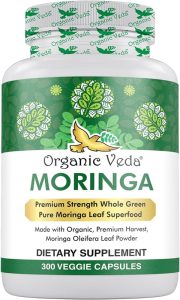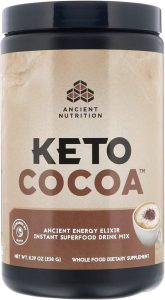Vitamin B-12 is essential for energy production in the body; studies show it benefits those with a deficiency. Individuals with normal B-12 levels, however, may not experience an energy boost from supplementation.
Seeking to maintain high energy levels throughout the day, many individuals turn to vitamins and supplements. Vitamin B-12 often comes into focus due to its critical role in energy metabolism. This water-soluble vitamin helps with the formation of red blood cells and the maintenance of central nervous system health.
Certain groups, such as older adults, vegetarians, and those with absorption issues, can be particularly vulnerable to B-12 deficiency, resulting in fatigue and weakness. For these individuals, B-12 supplements can be a game-changer. Nonetheless, it’s essential to be aware that B-12’s effectiveness is contingent on one’s baseline levels; without a deficiency, additional B-12 may not translate into increased vitality.
Introduction To B Vitamins And Energy
We all want that extra spark of energy to get us through the day. With busy lives and non-stop schedules, it’s not surprising many turn to vitamins for a boost. B vitamins, especially B-12, often come up in conversations about energy. But do they truly help? Let’s dive in and separate fact from fiction.
Understanding B-12’s Role In Energy Production
Vitamin B-12 is essential for making DNA and keeping nerves and blood cells healthy. It also plays a crucial role in converting the food you eat into cellular energy. Without enough B-12, your body can’t produce energy effectively, leading to fatigue.
The Myth Vs. Reality Of B-12 As An Energy Booster
Many believe B-12 supplements can boost energy. This is true if you’re deficient, but if your levels are fine, extra B-12 won’t turbocharge your energy. It’s not a magic pill but can help those lacking in this vital nutrient.
Overview Of The B Vitamin Family And Energy Metabolism
- Thiamin (B1) – Helps convert nutrients into energy
- Riboflavin (B2) – Critical for energy production
- Niacin (B3) – Converts food into ATP, energy’s currency
- Pantothenic Acid (B5) – Synthesizes fatty acids for energy
- Pyridoxine (B6) – Important for amino acid metabolism
- Biotin (B7) – Assists in energy-producing biochemical reactions
- Folic Acid (B9) – Helps form red blood cells for oxygen transport
- Cobalamin (B12) – Vital for neurological function and energy creation

Credit: modernmedstl
Scientific Evidence On B-12 And Energy
Vitamin B-12, also known as cobalamin, is often touted for its energy-boosting properties. People claim it fights fatigue and improves alertness. Let’s dive into the scientific evidence behind these claims.
Clinical Evidence Examining B-12 For Energy Enhancement
Research has looked into the role of Vitamin B-12 in energy metabolism. B-12 is vital for converting food into glucose. Glucose is what our cells use for energy. Studies reveal that people with B-12 deficiency often experience tiredness. After B-12 treatment, these individuals show marked improvements in energy levels. Clinical trials suggest a direct link between B-12 supplementation and decreased fatigue in those with a deficiency.
The Placebo Effect And B-12
Understanding the placebo effect is crucial. Some studies show improvements in participants’ energy levels with B-12 intake. Yet, these outcomes are sometimes comparable to those taking a placebo. This suggests that expectations might play a role in the perceived energy boost. Placebo-controlled trials help scientists determine the actual effects of B-12 on energy levels.
Research Limitations And Emerging Studies
Research on Vitamin B-12 and energy is still growing. Some studies have small sample sizes or short durations. These factors can limit the conclusions that can be drawn. Ongoing research aims to address these issues. New studies are emerging that look at B-12’s role in energy metabolism. These investigations seek to provide clearer answers on how effective Vitamin B-12 is for energy enhancement across different populations.
Vitamin B-12 Deficiency
Feeling tired or low on energy can sometimes be a sign of Vitamin B-12 Deficiency. This essential nutrient helps our body make energy. Without it, we can feel weak and fatigued. Let’s dive into the symptoms and effects of lacking this vital vitamin.
Symptoms And Signs Of B-12 Deficiency
- Fatigue and weakness
- Memory loss and confusion
- Anemia caused by a lack of red blood cells
- Balance issues and numbness
- Difficulty in maintaining concentration
Populations At Risk For B-12 Deficiency
| Population Group | Reason for Risk |
|---|---|
| Older adults | Decreased stomach acid production |
| Vegans and vegetarians | Lack of B-12 in plant-based diets |
| People with digestive disorders | Malabsorption issues |
Consequences Of Long-term B-12 Deficiency
- Nerve damage leading to numbness and tingling sensations
- Heart problems due to elevated homocysteine levels
- Mental health issues like depression and dementia
Sources Of Vitamin B-12
Exploring the various sources of Vitamin B-12 is essential for maintaining high energy levels. B-12 is a powerhouse nutrient that helps convert our food into fuel. Let’s dive into where you can get this vital vitamin!
Natural Dietary Sources Rich In B-12
- Animal Liver and Kidneys: Top picks for B-12 content.
- Clams: Small yet mighty sources of B-12.
- Sardines: Packed with nutrients, including B-12.
- Beef: Choose lean cuts for a healthy option.
- Fortified Cereals: Easy, everyday B-12 source.
- Tuna: Common in diets, rich in B-12.
- Dairy Products: Milk and yogurt can boost B-12 intake.
- Eggs: Versatile and contain moderate B-12.
Supplements: Forms Of B-12 Available
| Form | Description | Usage |
|---|---|---|
| Cyanocobalamin | Synthetic and widely used in supplements. | Oral tablets, injections. |
| Methylcobalamin | Natural form, similar to B-12 in food. | Oral tablets, lozenges. |
| Hydroxocobalamin | Produced by bacteria, used in injections. | Injections prescribed by doctors. |
| Adenosylcobalamin | Less common, naturally found in the body. | Dietary supplement form, less available. |
Comparing Synthetic Vs. Natural B-12
Synthetic B-12, like cyanocobalamin, is stable and affordable. Many choose it for its long shelf life and effectiveness.
Natural B-12 forms, such as methylcobalamin, are found in the foods we eat. They are better recognized by our bodies. This can result in superior absorption.
Absorption And Bioavailability Of B-12
Feeling tired? You might be thinking of Vitamin B-12 to boost your energy. Let’s explore how your body absorbs B-12 and how it becomes available for your energy needs.
Factors Affecting B-12 Absorption
Getting enough B-12 from your diet? That’s great! But here’s the catch: not all B-12 you consume gets absorbed. Several factors play a role:
- Age: As you get older, absorbing B-12 can get tougher.
- Medications: Certain meds can interfere with B-12 absorption.
- Alcohol: Heavy drinking can damage your stomach lining, affecting B-12 uptake.
- Gut health: Good gut health is a must for B-12 absorption.
The Role Of Intrinsic Factor In B-12 Uptake
Your stomach makes a protein called intrinsic factor (IF). This is a big deal for B-12 absorption. Without IF, B-12 can’t bond and be absorbed in your intestines. For some, low IF levels can lead to B-12 deficiency, even with sufficient intake.
Bioavailability In Supplements Vs. Food Sources
Wondering if you should get your B-12 from food or supplements? Here’s the lowdown:
| Source | Bioavailability |
|---|---|
| Food | Animal products like meat and dairy offer naturally bound B-12, which may be better absorbed due to the presence of proteins and IF. |
| Supplements | Supplements often contain crystalline B-12, which isn’t bound to protein, making it readily absorbable, especially for those with IF deficiency. |
Different forms of B-12 in supplements may affect bioavailability too. Methylcobalamin and adenosylcobalamin are ready for your body to use, while cyanocobalamin needs to be converted first.
Recommended Daily Intake Of B-12
Vitamin B-12 plays a crucial role in maintaining our body’s energy levels. It’s essential for red blood cell formation, nerve function, and DNA synthesis. Finding the right daily intake of this vital nutrient ensures our bodies remain vibrant and energetic. Let’s uncover how much B-12 is needed across different groups and conditions.
Establishing The Rdi For Different Demographics
The Recommended Daily Intake (RDI) of Vitamin B-12 varies by age, lifestyle, and physiological conditions. Infants require the least, while pregnant and breastfeeding women need more to support fetal and newborn development.
| Demographic | RDI of B-12 (mcg) |
|---|---|
| Infants (0-6 months) | 0.4 |
| Children (7-12 months) | 0.5 |
| Children (1-3 years) | 0.9 |
| Teens (14-18 years) | 2.4 |
| Adults | 2.4 |
| Pregnant Women | 2.6 |
| Breastfeeding Women | 2.8 |
Adjusting B-12 Intake For Specific Health Conditions
Some health conditions require adjusting vitamin B-12 intake. Individuals with pernicious anemia, older adults with absorption issues, or those who have had gastric bypass surgery may need higher doses.
- Pernicious Anemia: Requires B-12 injections or high-dose supplements
- Absorption Issues: Sublingual tablets or fortified foods may be recommended
- Gastric Bypass Surgery: Additional B-12 via injections or oral supplements
When To Consider B-12 Supplements
If your diet doesn’t provide enough B-12, or you’re at risk of deficiency, consider supplements. Signs of deficiency include fatigue, weakness, constipation, loss of appetite, and weight loss. Vegans, vegetarians, and those with certain health conditions should evaluate their need for supplements.
- Examine your diet for B-12 sources like meat, dairy, and fortified products.
- Consult with a healthcare provider if you fall into a high-risk group.
- If deficient, choose a supplement form that meets your body’s needs.
B-12 Supplementation
Feeling tired? You might have heard that vitamin B-12 can boost your energy. This key nutrient helps keep your nerves and blood cells healthy. It turns food into energy. Let’s explore how B-12 supplementation could invigorate your life.
Choosing The Right B-12 Supplement
Finding the best B-12 supplement is crucial for energy levels. The market offers various types:
- Cyanocobalamin: Synthetic, affordable, widely available.
- Methylcobalamin: Natural form, quicker absorption.
- Adenosylcobalamin: Less common, helps with DNA synthesis.
- Hydroxocobalamin: Longer-lasting in the body.
Consider vegan-friendly options if you have dietary restrictions. Choose certified and lab-tested supplements for safety.
Oral Vs. Injectable B-12: What’s Better For Energy?
When choosing your B-12, consider how you take it. Oral supplements are convenient but may not work well if you have absorption issues. Shots, given by a doctor, bypass the digestive system. This method can be better for some to boost energy fast.
Understanding Dosage And Frequency Of Supplementation
Dosage matters for energy levels. The recommended amount varies based on age, diet, and health conditions. Even the time of day can affect B-12’s energy-boosting effects. Talk to a healthcare professional for personalized advice.
| Age Group | Daily Recommended B-12 |
|---|---|
| Adults | 2.4mcg |
| Pregnant Women | 2.6mcg |
| Breastfeeding Women | 2.8mcg |
Remember, excess B-12 is usually harmless as your body excretes what it doesn’t need. Keep intake regular for steady energy.
Potential Side Effects And Interactions
Vitamin B-12 is often touted as an energy booster, particularly for those with fatigue or anemia. But it’s important to be aware of the potential side effects and interactions this vitamin can have when taken in high doses or in conjunction with certain medications and supplements. Understanding these can help you harness the benefits of B-12 without adverse effects.
Possible Side Effects Of High Dose B-12
Taking too much B-12 can lead to several unwanted side effects. These might include:
- Skin conditions: Acne or rosacea can sometimes appear.
- Peripheral vascular thrombosis: Rare, but a concern with excessive doses.
- Dizziness or headaches.
- Feelings of anxiety or nervousness.
- Unusual heart rhythms or palpitations.
Interactions With Medications And Other Vitamins
Vitamin B-12 doesn’t go solo; it can interact with various medications and supplements. Be mindful of its interactions with:
| Medication/Supplement | Type of Interaction |
|---|---|
| Proton pump inhibitors | May reduce B-12 absorption |
| Metformin | Can lower B-12 levels |
| Antibacterial medications | Could interact with B-12 absorption |
| Potassium supplements | Potential for reduced B-12 absorption |
Safe Supplementation Practices
To keep supplementation safe and effective, follow these tips:
- Consult with a healthcare provider before starting B-12.
- Only take the recommended dosage unless otherwise advised.
- Disclose all current medications and supplements to your healthcare provider to avoid interactions.
- Monitor your body’s reactions and report any adverse effects.
Consumer Choices And Marketing Claims
Consumer choices and marketing claims surrounding Vitamin B-12 have created a storm of products promising a boost in energy. But does B-12 work as claimed? Consumers must tread carefully through bold promises and flashy labels.
Deciphering Labels And Marketing Of B-12 Products
Vitamin B-12 supplements populate shelves with various claims. Consumers should look for key details on labels, such as dosage, form (cyanocobalamin or methylcobalamin), and the presence of additives or allergens. Labels boasting “high potency” or “rapid absorption” may catch your eye, but understanding what these terms truly mean is crucial.
- Dosage: Check the amount of B-12 in each serving.
- Form: Methylcobalamin or cyanocobalamin? The former is better absorbed.
- Labels: Ignore flashy terms; focus on nutritional content.
The Role Of Regulatory Bodies In Supplement Claims
The Food and Drug Administration (FDA) and other regulatory bodies set standards for supplement marketing. They ensure that claims are not misleading and protect consumer health. However, since B-12 supplements are not FDA-approved, their efficacy and safety may not be guaranteed. This underscores the importance of selecting reputable brands.
Look for certifications from third-party organizations like USP or NSF. These seals indicate a level of testing and quality assurance.
Considerations For Consumer Decisions
When selecting a B-12 supplement, consider your dietary intake, health conditions, and the advice of a healthcare professional. Always cross-reference product claims with scientific research and user reviews. This approach will ensure you find a product tailored to your needs.
- Evaluate your diet: Do you get enough B-12 from food?
- Assess health conditions: Some may increase B-12 needs.
- Verify claims: Research supports some B-12 benefits, not all.
Alternative Energy-boosting Vitamins And Supplements
Feeling drained or low on energy? B-12 might be a common go-to, but it’s not the only vitamin that can kick your energy levels up a notch. Let’s delve into a range of vitamins and supplements that are known for their ability to help the body generate energy.
Other B Vitamins And Their Energy-related Benefits
B vitamins play a pivotal role in energy production within the body. It’s like having a team where each player has a unique position to support vitality:
- B1 (Thiamine) helps convert nutrients into energy.
- B2 (Riboflavin) is crucial for breaking down fats and drugs.
- B3 (Niacin) supports enzyme function and energy transfer.
- B5 (Pantothenic Acid) is necessary for fatty acid synthesis.
- B6 (Pyridoxine) aids in amino acid metabolism.
- B7 (Biotin) is essential for carbohydrate and fat breakdown.
- B9 (Folate) works with B12 to create red blood cells.
Beyond B-12: Exploring Other Energy Supplements
While B-12 is crucial, several other supplements can also help to boost your energy:
| Supplement | Energy Benefit |
|---|---|
| Iron | Helps in transporting oxygen in the body. |
| Magnesium | Plays a role in energy creation. |
| Creatine | Improves strength and aids in short bursts of energy. |
| Rhodiola Rosea | Combats fatigue and improves concentration. |
| CoQ10 | Powers cells and boosts energy production. |
Holistic Approaches To Improving Energy Levels
To boost energy, a holistic approach can be powerful. Focus on lifestyle changes such as:
- Quality Sleep: Establish a regular sleep schedule.
- Stress Reduction: Embrace techniques like yoga or meditation.
- Healthy Eating: Emphasize whole foods with a balanced diet.
- Regular Exercise: Stay active to increase energy over time.
- Stay Hydrated: Drink water to avoid fatigue caused by dehydration.
Real-life Applications And Anecdotal Evidence
Exploring the real-life applications and anecdotal evidence of vitamin B-12 can enlighten us on its effectiveness for boosting energy. People around the world share their personal experiences, while health professionals provide critical evaluations. Moreover, case studies offer a glimpse into the impact of B-12 on energy levels.
Personal Success Stories With B-12 For Energy
Countless individuals swear by the energy-boosting benefits of B-12. Online forums and social media are filled with stories of increased vigor and improved stamina post B-12 supplementation. Users attribute their enhanced daily performance and mental alertness to the regular intake of this vitamin.
Skepticism And Criticism From Health Professionals
Despite personal success stories, some health professionals express skepticism. They caution that positive effects may be placebo or only beneficial to those with B-12 deficiencies. They stress the importance of balanced diets and question the efficacy of supplements for individuals with adequate B-12 levels.
Case Studies And User Testimonials
A variety of case studies and user testimonials provide tangible insights into B-12’s role in energy enhancement. Documented examples showcase individuals experiencing notable improvements in their energy levels and overall well-being after incorporating B-12 into their routine.
- Testimonials from athletes: They report better performance and faster recovery times.
- User reviews: Many report a significant uptick in daily energy.
- Health journals: Publish case studies confirming the effectiveness of B-12 for those with deficiencies.
Role Of B-12 In Overall Health
Vitamin B-12 is a powerhouse in the realm of vitamins. It helps transform food into energy your body can use. Not just an energy booster, B-12 is crucial for healthy blood and nerve functioning. Ever felt fatigued or foggy? Your B-12 levels might hold the answer.
B-12’s Impact On Blood And Nerve Health
Vitamin B-12 keeps your blood cells happy and healthy. It’s vital for producing red blood cells that carry oxygen throughout the body. B-12 also maintains myelin, a substance that wraps around nerves for protection and speedy signals.
The Relationship Between B-12 And Mental Health
Brain functions rely heavily on B-12. This vitamin contributes to serotonin production, affecting mood and sleep patterns. Low B-12 levels can lead to stress, depression, and anxiety. Keeping B-12 at healthy levels is a step towards stable mental health.
Long-term Benefits Of Maintaining Adequate B-12 Levels
- Prevents anemia: Adequate B-12 prevents megaloblastic anemia, which makes people tired and weak.
- Supports bone health: Helps in bone formation, reducing the risk of osteoporosis.
- Promotes eye health: Protects against age-related macular degeneration.
Faqs: Addressing Common Misconceptions
When it comes to boosting energy, Vitamin B-12 often sparks a lot of questions. Let’s debunk some of the most common misconceptions about this crucial vitamin.
Can B-12 Supplements Provide Instant Energy?
Many people believe that taking B-12 supplements will give them an immediate energy boost. This is not the case. B-12 helps in energy production by aiding in the conversion of food into glucose. However, its effects are not instantaneous.
- Benefits depend on regular, consistent intake.
- Improvements in energy levels may take days or weeks to manifest.
Does B-12 Improve Athletic Performance?
Some athletes take extra B-12 hoping it will enhance their performance. While B-12 is essential for energy metabolism, there is no conclusive evidence that increased intake enhances athletic ability.
- It’s crucial for athletes to maintain a balanced diet with adequate B-12.
- Focus should be on overall nutrition rather than high doses of specific vitamins.
Is There A Risk Of B-12 Overdose?
B-12 is water-soluble, meaning excess amounts are usually excreted by the body. However, that doesn’t mean it’s risk-free to consume in large quantities. Always stick to recommended doses to avoid potential side effects.
| Signs of Excess B-12 | Recommended Action |
|---|---|
| Unusual body odors | Consult a healthcare provider |
| Skin conditions | Review your vitamin intake |
:max_bytes(150000):strip_icc()/b12-supplements-tout-4122ebadb7f5447388d65a4ebf4ad44a.jpg)
Credit: www.health.com
B-12 In Special Diets
Vitamin B-12 is a powerhouse when it comes to boosting energy levels. This nutrient helps convert food into glucose, providing us with that much-needed zest to tackle the day. However, dietary choices can greatly affect B-12 levels. People on special diets often need to pay extra attention to their B-12 intake to avoid deficiency and maintain energy levels.
Managing B-12 intake in vegan and vegetarian diets
Managing B-12 Intake In Vegan And Vegetarian Diets
In vegan and vegetarian diets, B-12 can be a challenge. These plans exclude meat, a major source of B-12. To sidestep this hurdle, consider these tips:
- Integrate B-12 fortified foods like plant milks, some breakfast cereals, and nutritional yeast.
- Consider a regular B-12 supplement, especially if you are a strict vegan.
- Regularly check your B-12 levels with your healthcare provider.
B-12 considerations in paleo and keto diets
B-12 Considerations In Paleo And Keto Diets
Unlike vegan or vegetarian diets, paleo and keto diets often include animal products, which are rich in B-12. Keep the following in mind:
- Focus on grass-fed meat and wild-caught fish, as these are high in B-12.
- Avoid overcooking meats, which can reduce their vitamin content.
- Include eggs and shellfish in your routine, as they are excellent sources of B-12.
Impact of fad diets on B-12 levels and energy
Impact Of Fad Diets On B-12 Levels And Energy
Fad diets often promise quick weight loss or health boosts but may unintentionally reduce vital nutrients like B-12. Here’s how to approach them:
| Fad Diet | B-12 Impact | Action Steps |
|---|---|---|
| Juice Cleanses | Limited animal products | Include a B-12 supplement |
| Extreme Low-Calorie | Potential nutrient deficiency | Monitor nutrient intake closely |
Remember, while fad diets might be tempting, a balanced, varied diet coupled with a sound supplement strategy is the best way to maintain energy through adequate B-12 levels.
Medical Professional Perspectives
When it comes to boosting energy, many individuals turn to vitamin supplements with the hope of feeling more vigorous and lively. Among these supplements, Vitamin B-12 often headlines as the go-to option for enhancing vitality. Let’s explore what medical professionals have to say about this popular vitamin.
Expert Opinions On B-12 For Energy
Vitamin B-12 is famed for its energy-boosting potential, but what do the experts really think? Doctors note that B-12 plays a critical role in converting food into glucose. Glucose is the fuel that keeps our bodies running. Experts assert that for those with a deficiency, B-12 supplements can lead to noticeable increases in energy and reduction in fatigue. However, for individuals with adequate B-12 levels, additional supplements may not have the same impact.
Clinical Advice For Patients Considering B-12 Supplementation
If you’re thinking about B-12 supplements, it’s best to start with a conversation with your healthcare provider. They can order blood tests to determine your B-12 levels and uncover any deficiencies. Clinical advice generally points towards obtaining vitamins from a balanced diet. In cases where diet falls short, supplements under medical guidance can be beneficial.
The Importance Of Medical Supervision
Why is a doctor’s input critical? Vitamin B-12 can interact with certain medications and medical conditions. Taking high doses without a prescription might lead to adverse effects. Regular monitoring ensures safe and effective use of the vitamin for energy enhancement. Remember, personalized medical advice is invaluable when considering supplementation of any kind.
Economic Aspects Of The B-12 Supplement Industry
Economic Aspects of the B-12 Supplement Industry
The B-12 supplement industry is a significant sector within the vitamin market. Many people turn to these supplements to boost energy, fight fatigue, and ensure proper body function. Let’s delve into the economics of this booming market.
Market trends and consumer spending on B-12
Market Trends And Consumer Spending On B-12
The Vitamin B-12 market has seen continuous growth due to rising health awareness.
- Yearly spending on B-12 supplements is soaring as consumers pursue wellness.
- Marketing campaigns have boosted sales, citing benefits like energy enhancement.
- Popular online marketplaces and physical stores both contribute to widespread access.
The cost-effectiveness of B-12 supplements
The Cost-effectiveness Of B-12 Supplements
B-12 supplements are an affordable option for those seeking energy support.
| Product | Price | Quantity |
|---|---|---|
| Generic B-12 Tablets | $10 | 100 count |
| Branded B-12 Capsules | $20 | 60 count |
Many users find B-12 costs less than other energy-boosting alternatives.
Regular users often report positive effects on energy levels, justifying the purchase.
Analyzing the B-12 supplement supply chain
Analyzing The B-12 Supplement Supply Chain
The supply chain for B-12 supplements is complex.
- Manufacturers source raw materials globally, impacting costs and availability.
- Quality control ensures potency and safety, adding to end prices.
- Distribution through multiple channels further influences consumer access and cost.
Sustainable sourcing and production practices are becoming more important to consumers.
Global Perspectives On Vitamin B-12
Vitamin B-12 is a globally recognized powerhouse in the fight against fatigue.
People from every corner of the world have sought its energy-boosting properties.
But does the cultural hype align with scientific findings?
Let’s explore global insights on Vitamin B-12 and its energy connection.
Cultural beliefs regarding B-12 and energy
Cultural Beliefs Regarding B-12 And Energy
In many cultures, Vitamin B-12 is synonymous with energy and vitality. Folk remedies often include B-12 rich foods as a solution for fatigue. From the bustling markets of India to the tranquil Scandinavian fjords, stories of B-12’s energy-boosting effects are told.
- In Japan, fermented foods high in B-12 are staples for sustained energy.
- In Mexico, traditional diets rich in animal products are believed to help maintain vigor.
- European folk medicine has long suggested B-12 for the lethargic.
International guidelines on B-12 intake
International Guidelines On B-12 Intake
Health organizations worldwide have created guidelines for proper Vitamin B-12 intake.
| Country | Recommended Daily Allowance |
|---|---|
| USA | 2.4 µg for adults |
| UK | 1.5 µg for adults |
| India | 1 µg for adults |
These guidelines aim to strike a balance for optimal health and energy levels.
B-12 deficiency in developing vs. developed countries
B-12 Deficiency In Developing Vs. Developed Countries
B-12 deficiency presents differently across various economies.
In developed nations, B-12 deficiency often comes from dietary choices or medical conditions.
In developing countries, the causes are more likely due to lack of access to B-12-rich foods and general malnutrition.
Efforts such as food fortification and educational programs are in place to combat this discrepancy.
Technological Advancements In B-12 Supplementation
In the quest for vitality, Vitamin B-12 stands out among the crowd. Known for its pivotal role in energy production, B-12 has been synonymous with combating fatigue and keeping our bodies’ engines humming. But how has technology changed the way we receive and monitor this essential nutrient? Let’s dive into the world of B-12 supplementation, where innovation meets health sciences.
Innovations in supplement delivery systems
Innovations In Supplement Delivery Systems
New delivery methods are making B-12 intake more effective. Traditional pills and injections are now joined by advanced options.
- Nasal sprays offer convenience and efficiency.
- Dissolvable strips provide fast absorption through the mouth lining.
- Skin patches release B-12 steadily over time.
The future of B-12 testing and monitoring
The Future Of B-12 Testing And Monitoring
Testing for B-12 levels used to require a visit to the doctor. Home testing kits have changed the game.
- Simple finger prick tests can be done at home.
- Digital platforms track B-12 levels over time.
- Personalized apps suggest supplementation plans based on your results.
Emerging research on B-12 absorption
Emerging Research On B-12 Absorption
Scientists are discovering how to improve B-12 uptake by our bodies. Factors like genetics and gut health play a role.
| Factor | Impact on Absorption |
|---|---|
| Genetics | Some people have variations that affect B-12 absorption. |
| Gut Health | Good bacteria in our gut help us use B-12. |
Conclusion: B-12’s Place In Energy Supplementation
Vitamin B-12 has gained a reputation for being the go-to vitamin for energy. In this section, we’ll wrap up what we’ve learned about this intriguing nutrient and its role in energy levels. Whether you’re a gym enthusiast, a busy professional, or simply looking for that extra kick to get through your day, understanding B-12’s function could be crucial.
Summarizing The Efficacy Of B-12 For Energy
Vitamin B-12 is a powerhouse. It helps make DNA and keeps nerve and blood cells healthy. Feeling tired can sometimes signal a lack of B-12, especially for vegans and older adults. Many studies show that B-12 supplements can decrease fatigue in those deficient.
- B-12 is vital for energy production in cells.
- Deficiency can lead to tiredness and weakness.
- Supplementation boosts energy if levels are low to start with.
Considerations For The Future Of B-12 Research
The potential of Vitamin B-12 in energy supplementation is huge. Future research may reveal more about how this vitamin helps the body. Scientists will also look at its impact on brain function and metabolism.
Key focus areas include:
- Long-term effects of supplementation.
- Differences in absorption among individuals.
- The role of B-12 in mental clarity and performance.
Key Takeaways For Consumers And Health Enthusiasts
For those considering B-12 supplements, remember the following:
| Key Point | Details |
|---|---|
| Get Tested | Check B-12 levels before starting supplements. |
| Source Matters | Animal products are primary B-12 sources. Consider supplements if you’re vegan. |
| Balance Diet | A varied diet can help maintain healthy B-12 levels. |
| Consult Professionals | Always talk to a healthcare provider before supplementing. |
Vitamin B-12 could be your answer to enhanced daily energy. With this guide, make an informed decision on how to manage your energy levels with B-12 supplementation.

Credit: www.amazon.com
Frequently Asked Questions Of Vitamins For Energy: Does B-12 Work?
Does B12 Really Give You Energy?
Vitamin B12 can contribute to increased energy levels if you have a deficiency. Without a deficiency, B12 likely won’t boost energy.
Does Vitamin B12 Actually Work?
Yes, vitamin B12 is effective for preventing and treating B12 deficiency and associated conditions.
How Quickly Does Vitamin B12 Work For Fatigue?
Vitamin B12 can start improving energy levels within a few days of treatment if you are deficient.
Should I Take B12 Or B Complex For Energy?
Taking a B complex can support overall energy since it includes B12 along with other B vitamins that aid in energy production.
What Are the Benefits Of Vitamin B-12?
B-12 supports nerve function, red blood cell formation, and DNA synthesis, potentially boosting energy levels in those with a deficiency.
Can B-12 Improve Fatigue?
Yes, if fatigue results from B-12 deficiency, supplementation can improve energy and reduce tiredness.
Is B-12 Effective For Everyone?
B-12 primarily benefits individuals with its deficiency; others may not experience significant energy boosts.
How Much B-12 Should I Take?
Recommended B-12 intake varies, but adults typically need 2. 4 micrograms daily. Consult a healthcare professional for personalized advice.
Does B-12 Have Side Effects?
Most people tolerate B-12 well; however, high doses may cause headaches, itching, or gastrointestinal issues.
Can B-12 Increase Metabolism?
B-12 plays a role in energy metabolism, but it does not directly increase metabolism in those with adequate B-12 levels.
Conclusion
Wrapping up, B-12 stands as a key player in maintaining energy levels in those deficient in this crucial vitamin. Evidence supports its role in combating fatigue and promoting vitality, particularly for individuals with B-12 insufficiencies. To truly empower your wellness journey, consider B-12’s benefits and consult healthcare professionals for personalized advice.
Embracing a balanced diet paired with the right supplements could be your ticket to renewed energy and overall health.










Be First to Comment